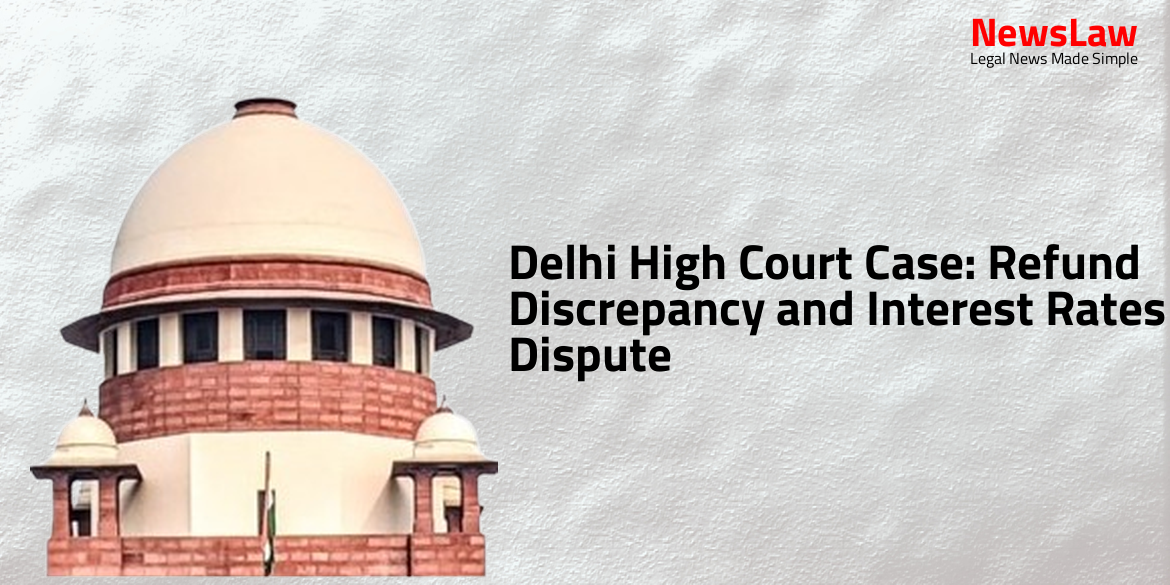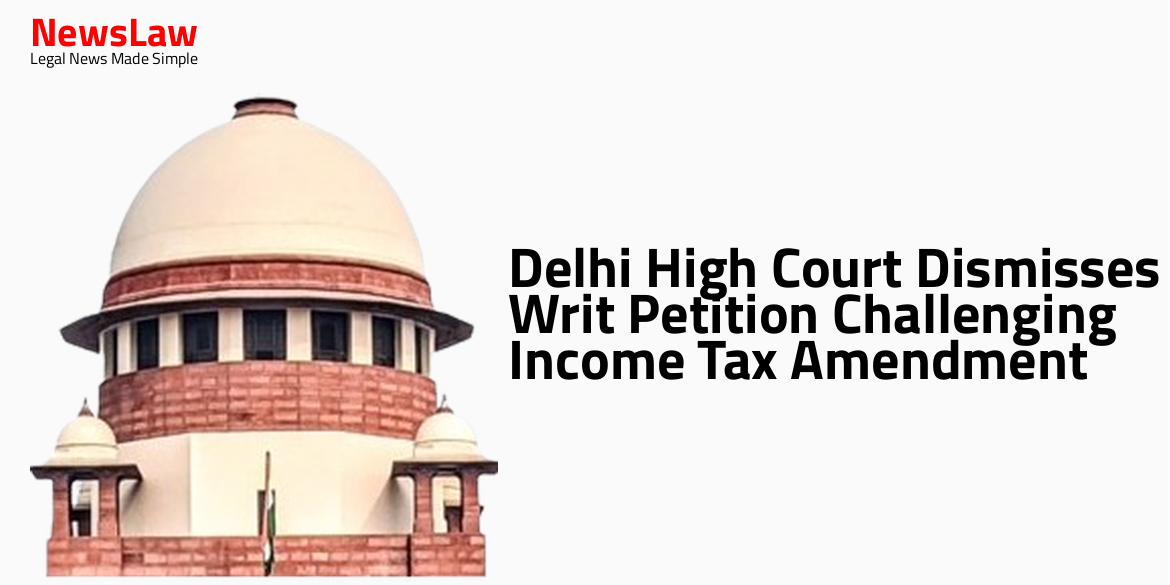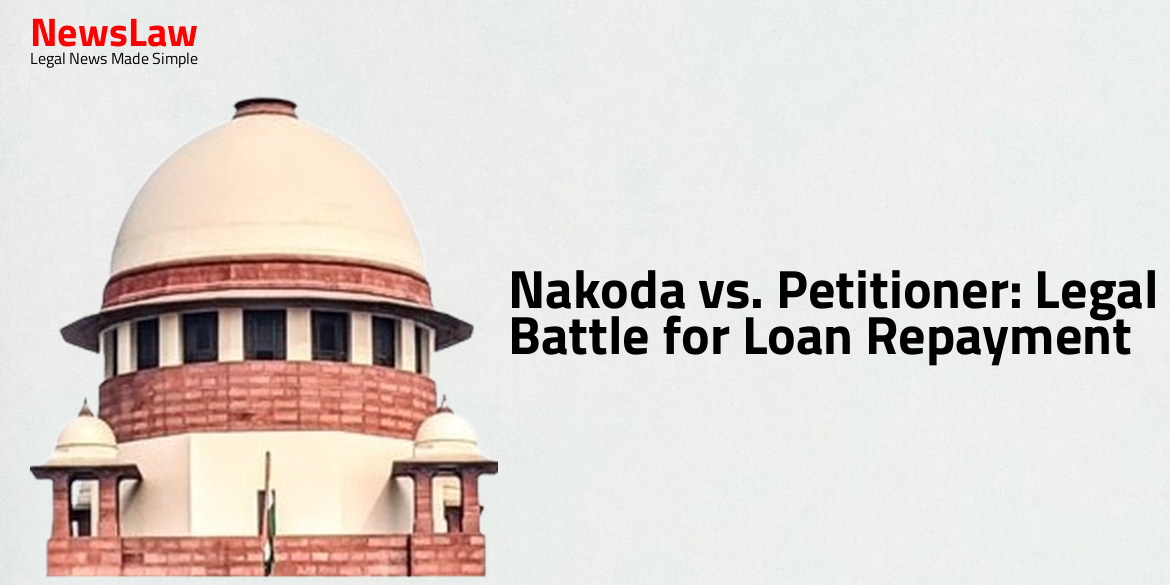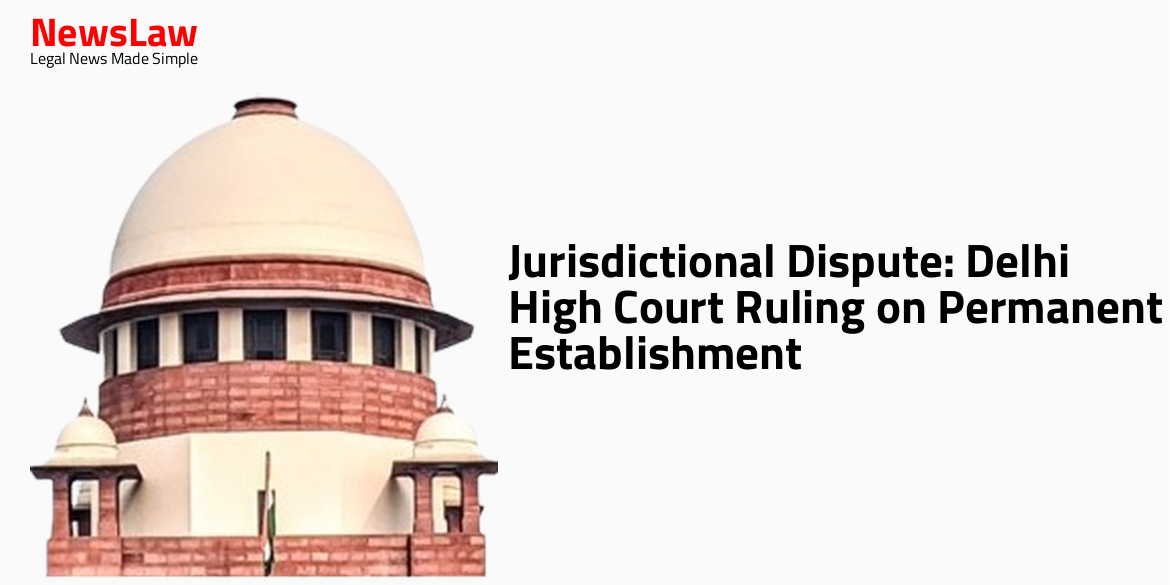In a recent judgment by the Delhi High Court, a case involving a refund discrepancy and disagreement over interest rates was deliberated upon. The parties involved, KM and KAL, were found to have breached certain obligations, leading to a directive for a substantial refund. However, the court raised questions regarding the validity and reasoning behind the interest rates imposed on the refund amount. Follow this case closely for further insights into this complex legal matter.
Facts
- The appellants shall be liable to pay interest at the rate of 12% per annum on Rs. 308,21,89,461/- as they took over a significant liability and paid interest on tax amounts for the claimants.
- Counterclaim allowed for the appellants as they have paid interest/servicing charges of around Rs. 29 crores in relation to the CRPS claim.
- Efforts to exercise the option described in detail must be made by both parties within a specified time frame, failing which the appellants must refund Rs. 270,86,99,209/- to the claimant.
- Interest at the rate of 18% per annum was originally claimed, but the tribunal deemed 12% interest on the total refund amount as appropriate considering the circumstances.
- Claimants are entitled to a refund of Rs. 308,21,89,461/- from the appellants.
- The Counter-Claim was decided in favor of the petitioners, deducted from their liability towards the respondents.
- INR 245 crores was utilized for SpiceJet’s operational expenses.
- A substantial part of the received INR 350 crores was deployed for the benefit of KM.
- Details of amounts paid by KM and KAL were presented, along with their utilization by SpiceJet.
- The Arbitral Tribunal found discrepancies in the payment and deposit of the agreed amounts between the parties.
- Rs. 100 crores remained payable by the respondents towards the Tranche-I CRPS amount.
- The respondents were supposed to make a fixed deposit of Rs. 100 crores, which was not found in the designated bank account.
- INR 105 crores of the sum was used for various financial obligations like taxes and overdue instalments.
Issue
- The fundamental questions raised for evaluation are the validity of the direction for refund of INR 270,86,99,209/- and prescriptions for pendente lite and future interest.
- The question of whether the arbitrator has the power to award interest pendente lite is to be explored on principle.
- Consideration is needed on whether the appellants procured the remaining machinery from other sources, the price, time taken, and the resultant quantity and quality of products.
Arguments
- Mr. Sibal argued that the learned Single Judge did not evaluate or provide reasons for dismissing the petition under Section 34 which challenged the validity of the Award regarding interest grant.
- The financial impact of the appeals on the Award was highlighted, questioning the AT’s granting of interest at a specific rate for different periods.
- Reference was made to the decision in Morgan Securities and Credits Pvt. Ltd, reaffirmed by the Supreme Court, to support the AT’s directions.
- It was contended that the direction for refund of sums would mean rewriting contractual terms; KAL and KM had failed to comply with the obligation to inject INR 450 crores into SpiceJet.
- Arguments were made about the issuance of CRPS on the same terms if the Claimants fulfilled obligations, with emphasis on committed support for INR 450 crores.
- The grant of interest at 12% on the refund amount was contested as untenable, given the CRPS redemption terms scheduled after eight years.
- The AT’s failure to provide reasons for granting interest at 18% was highlighted as a substantial ground for setting aside the Award.
- The counterclaim for Rs. 100 crores, in addition to interest reimbursed to CUB, was challenged, including the suspicious conduct of diverting interest to Claimant No 2’s personal account.
- Mr. Sibal emphasized the limitations of Section 34 jurisdiction, focusing on ‘patent illegality’ and manifest perversities in the Award.
- The argument presented by Mr. Singh focused on the absence of breach on the part of the Petitioner Company regarding the issuance of Warrants or CRPS, as determined by the Arbitral Tribunal.
- Citing a case from the Patna High Court, Mr. Singh disputed the interest awarded on the refund of Warrants, amounting to Rs. 308 Crores, emphasizing that even in case of contract breach, the advance payment should be refunded.
- The inconsistency in holding KAL and KM in breach of the agreement while still awarding refunds and interest was pointed out by Mr. Singh, challenging the rationale behind this decision.
- Contrary to the refund direction by the Arbitral Tribunal, it was argued that the agreement did not include provisions for refunds in case of non-issuance of CRPS.
- Mr. Sibal raised concerns regarding the excessive interest rates imposed by the Arbitral Tribunal, deeming them as unjustified, and pointed to discrepancies in the decision to award refunds despite the finding of breach on the part of KAL and KM.
- The argument further delved into the failure of the Arbitral Tribunal to consider specific circumstances, such as the funds being secured during the proceedings, and the proposal for alternative instruments which was declined by KAL and KM.
- Overall, the contention was centered around challenging the validity and reasoning behind the interest rates and refund directions given by the Arbitral Tribunal.
Analysis
- The limitations on the Court while exercising powers under Section 34 of the Arbitration Act have been highlighted.
- The Court emphasized that re-writing a contract for the parties would be a breach of fundamental principles of justice entitling a Court to interfere only in exceptional cases.
- Specific contentions raised on behalf of the appellants regarding the award of refund were not adequately addressed in the impugned judgment.
- The Court reiterated that if there are two plausible interpretations of the terms and conditions of the contract, no fault can be found with the arbitrator selecting one interpretation over the other.
- The concept of ‘patent illegality’ in an award was discussed, emphasizing the importance of an arbitrator acting within the terms of the contract.
- The role of the arbitrator, the principles governing the award of interest, and the restricted interference by the Courts under Section 34 and Section 37 of the Act were elaborated upon.
- The Court recognized the need for courts to refrain from interfering with arbitral awards in a casual manner, respecting the finality and party autonomy in arbitration proceedings.
- Payment is defined as the act of paying or discharge of a debt or obligation.
- The arbitral tribunal has the discretion to award interest on the whole or any part of the sum for which the award is made.
- The current rate of interest is defined in the Interest Act, 1978.
- The arbitral tribunal may award interest at a reasonable rate for the period between the cause of action and the date of the award.
- The high rate of interest awarded after 120 days may be considered arbitrary as the award-debtor has a maximum period of 120 days to challenge the award.
- Section 31(7)(b) pertains to post-award interest and is not subject to party agreement.
- Interest may be awarded on either the whole or any part of the sum awarded.
- The personal liability of Ajay Singh was not specifically raised or assailed in the appeals.
- The parties are granted a fresh opportunity to address submissions on salient issues and preserve the right to challenge any subsequent judgment.
- The learned Single Judge erred in dismissing the Section 34 petitions without considering the challenges raised.
- There is no justification to render a finding on the validity of the Award on merits.
- The discussion on the validity of the award and grant of interest is in the context of examining the correctness of the judgment by the Single Judge.
- The appellate power under Section 37 is confined to specific grounds for interference with an award.
- The Section 34 Court failed to adequately consider the principal challenges raised.
- The lack of opinion from the Section 34 Court hampers the evaluation of challenges on merits.
- The Section 37 Court cannot independently render findings that may deprive a party of their first instance appellate remedy.
Decision
- SSPA entered into by Parties on 29.01.2015.
- Rs. 300 Crores brought in advance by KAL and KM for Warrant and CRPS subscription.
- Rs. 50 Crores brought in advance by KM towards CRPS subscription.
- Modified requirement in July 2017 for SJ and AS to furnish Bank Guarantee for INR 329 crores and make cash deposit of Rs. 250 crores.
- Total amount involved is Rs. 308,21,89,461 /- to be refunded to the Claimants.
- Amount to be calculated for about 30 months.
- The matter remanded for Section 34 petitions to be considered afresh.
- Applicant allowed further period of thirty days for application if prevented by sufficient cause.
- Claimants to decide on the offer made by the Parties within two months.
Case Title: AJAY SINGH Vs. KAL AIRWAYS PRIVATE LIMITED & ANR. (2024:DHC:3990-DB)
Case Number: FAO(OS) (COMM)-179/2023



